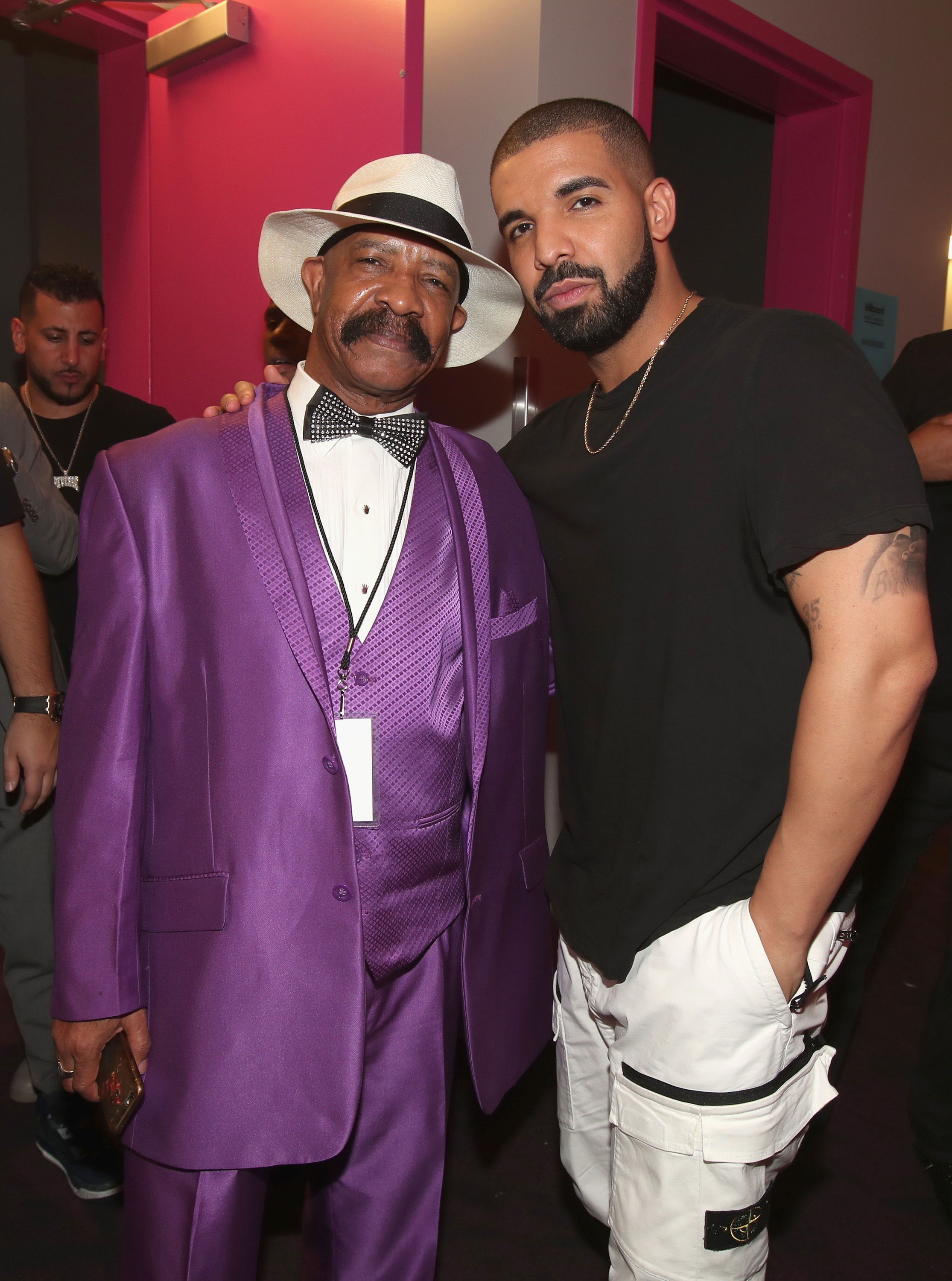Father-son relationships have long been a subject of fascination and study, often revealing complex dynamics that shape the lives of both individuals. In the realm of music, few relationships are as compelling and consequential as that between Dennis Graham and his son, Aubrey Drake Graham, better known simply as Drake. While Dennis Graham’s influence on Drake’s success may not be immediately apparent, a closer examination reveals a significant, albeit subtle, impact.

Dennis Graham, a drummer for the renowned musician Jerry Lee Lewis, is a figure whose role in Drake’s life extends beyond the realm of music. His presence and influence are intricately woven into the fabric of Drake’s personal and professional journey. Although Dennis was not a constant presence in Drake’s early life, his contributions and the values he imparted are undeniable in the context of Drake’s rise to fаme.
Drake’s relationship with his father was marked by both distance and presence. Dennis Graham’s career in the music industry provided a backdrop to Drake’s childhood, offering him a unique perspective on the world of entertainment. Despite not always being physically present, Dennis’s background and experiences played a pivotal role in shaping Drake’s understanding of music and the industry. This indirect influence is crucial in appreciating how Drake developed his distinctive style and approach.

The absence of a father figure in the traditional sense often leads to a deeper exploration of one’s identity and aspirations. For Drake, this meant finding inspiration from his father’s legacy while also forging his own path. Dennis’s sporadic involvement in Drake’s life forced the young artist to seek his own understanding of success and creativity, which ultimately contributed to the development of his unique voice and persona. This blend of inherited legacy and personal discovery is a testament to the complexities of their relationship.
Drake’s success is not solely attributable to his father’s musical background but also to the broader lessons he learned from his father’s career. Dennis Graham’s experiences in the music industry provided Drake with invaluable insights into the intricacies of fаme, performance, and perseverance. These lessons, coupled with Drake’s own ambitions and talents, laid the groundwork for his extraordinary achievements.

The influence of Dennis Graham on Drake is also reflected in the artist’s lyrical content. Drake’s music often explores themes of family, legacy, and personal growth, subtly acknowledging the impact of his father’s presence, both direct and indirect. This thematic depth highlights how personal relationships, even when imperfect, can leave a lasting imprint on one’s creative output.
The hidden stories behind father-son relationships are often layered and complex, with profound effects on the individuals involved. Dennis Graham’s impact on Drake’s success is a prime example of how a father’s influence, whether through direct involvement or indirect legacy, can shape a child’s journey in remarkable ways. While Dennis may not have been a constant presence in Drake’s life, the lessons and experiences he brought to the table have undeniably contributed to Drake’s rise as a global icon. This dynamic illustrates that the true depth of influence in father-son relationships often goes beyond mere presence, resonating through the achievements and experiences of the next generation.